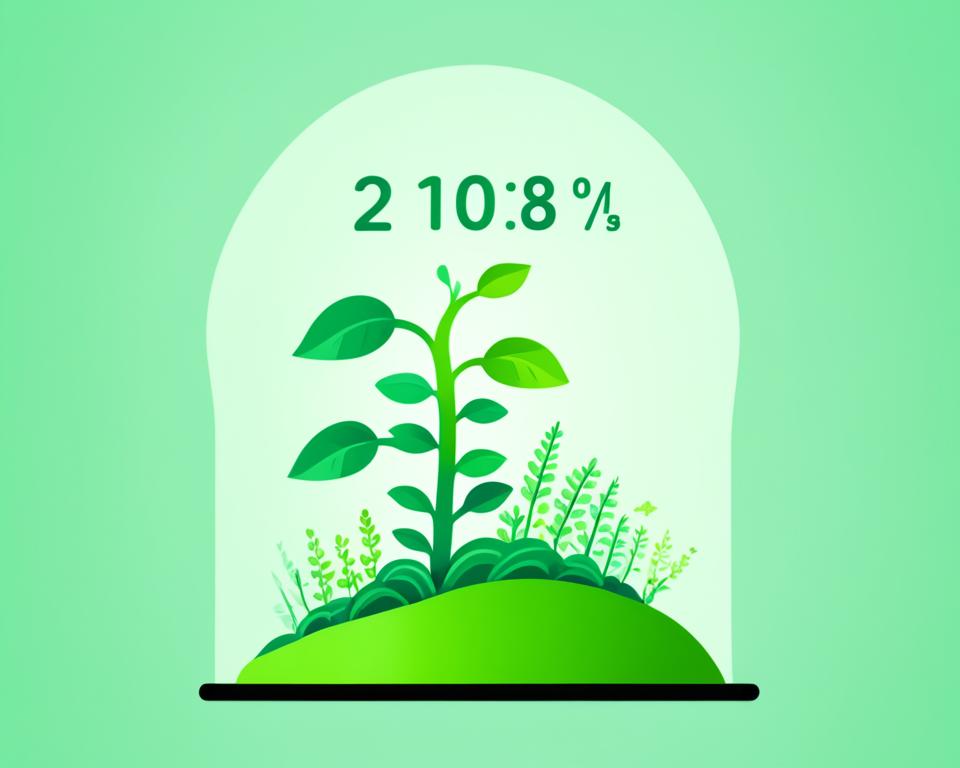Finding the Perfect Balance: How Many Credit Cards Should You Have?
Are you a credit card enthusiast or considering opening a new line of credit? Before you swipe away, it’s essential to understand the importance of finding the perfect balance when it comes to the number of credit cards you have. In this article, we will explore the age-old question: how many credit cards should you have?
Having multiple credit cards can be beneficial if managed wisely. Each card comes with its own rewards, benefits, and credit limit, which can help you diversify your spending and optimize your financial goals. However, carrying too many cards can also lead to the temptation of overspending, accumulating unnecessary debt, and affecting your credit score.
By striking the right balance, you can take advantage of credit card perks without compromising your financial health. We will discuss factors such as credit utilization, credit scores, and financial goals to help you determine the ideal number of credit cards for your unique situation.
So, whether you already own a wallet filled with plastic or are considering opening your first credit card, join us as we unravel the mystery behind finding the perfect balance in the world of credit cards.
The pros and cons of having multiple credit cards
Having multiple credit cards has its advantages and disadvantages. Let’s explore both sides of the coin.
Pros of Having Multiple Credit Cards
1. Rewards and Benefits: Each credit card offers its own set of rewards and benefits, such as cashback, travel points, or discounts. By having multiple cards, you can maximize your rewards potential and tailor your spending to different categories, such as groceries, dining, or travel.
2. Credit Utilization: Credit utilization, the ratio of your credit card balances to their limits, plays a crucial role in your credit score. With multiple cards, you can distribute your expenses across different credit limits, keeping your credit utilization low and positively impacting your credit score.
3. Emergency Backup: In case of emergencies or unexpected expenses, having multiple credit cards can provide a financial safety net. It allows you to spread the costs across different cards and gives you additional purchasing power when needed.
Cons of Having Multiple Credit Cards
1. Overspending Temptation: The more credit cards you have, the higher the temptation to overspend. Having multiple cards may make it easier to accumulate debt and spend beyond your means. It’s important to exercise self-discipline and avoid reckless spending habits.
2. Fees and Annual Costs: Many credit cards come with annual fees, and having multiple cards means additional expenses. It’s essential to consider the costs associated with each card and assess whether the rewards and benefits outweigh the fees.
3. Organizational Challenges: Managing multiple credit cards can be overwhelming, especially when it comes to tracking due dates, payments, and rewards programs. It requires discipline and organization to stay on top of your credit card responsibilities.
The impact of credit cards on your credit score
Your credit score is a vital factor when it comes to obtaining loans, mortgages, or even renting an apartment. Let’s delve into how credit cards can influence your credit score.
Credit Utilization Ratio
One of the key factors affecting your credit score is your credit utilization ratio. This ratio represents the amount of credit you are using compared to your total credit limit.
A lower credit utilization ratio is generally better for your credit score. By having multiple credit cards, you can distribute your expenses across different credit limits, keeping your credit utilization low. This demonstrates responsible credit usage and can positively impact your credit score.
However, it’s important to note that having too many credit cards with high balances can also negatively affect your credit score. Lenders may view this as a sign of potential financial strain or risk.
Length of Credit History
Another factor that affects your credit score is the length of your credit history. Opening multiple credit cards simultaneously can lower the average age of your credit accounts, which may have a negative impact on your credit score.
On the other hand, having a longer credit history with multiple well-managed credit cards can demonstrate financial responsibility and improve your credit score over time.
Credit Inquiries
When you apply for a new credit card, the credit card issuer usually performs a hard inquiry on your credit report. Multiple credit inquiries within a short period can negatively impact your credit score.
Therefore, it’s important to carefully consider the number of credit cards you apply for within a specific timeframe. Too many inquiries can signal to lenders that you may be seeking excessive credit and pose a higher risk.
How many credit cards are too many?
Determining the right number of credit cards depends on various factors, including your financial goals, spending habits, and ability to manage multiple accounts. While there’s no definitive answer, here are some guidelines to consider.
Evaluate Your Financial Goals
Start by evaluating your financial goals and what you hope to achieve with your credit cards. Are you primarily focused on earning rewards, improving your credit score, or managing your expenses efficiently? Understanding your objectives will help guide your decision on how many credit cards to have.
Assess Your Spending Habits
Take a closer look at your spending habits and patterns. Do you tend to overspend or have difficulties managing your expenses? If so, it may be wise to limit the number of credit cards you have to avoid falling into debt.
Consider Your Credit Management Skills
Managing multiple credit cards requires discipline and organization. Can you handle the responsibility of tracking due dates, making payments, and staying within your credit limits? If you’re confident in your ability to manage multiple accounts effectively, you may consider having more credit cards.
Evaluate Your Credit Score and History
Your credit score and credit history play a significant role in determining your creditworthiness. If you have a strong credit score and a lengthy credit history, you may be able to handle more credit cards without negatively impacting your financial profile.
However, if your credit score is currently low or you have a limited credit history, it may be wise to start with one or two credit cards and gradually build your credit over time.
Factors to consider when deciding how many credit cards to have
When deciding the number of credit cards to have, consider the following factors:
Credit Score
Your credit score is an essential factor to consider. If your credit score is below average, it’s best to focus on improving it before applying for additional credit cards.
Financial Responsibility
Evaluate how responsible you are with your finances. If you tend to overspend or carry balances on your credit cards, having fewer cards may be the right choice to prevent unnecessary debt.
Rewards and Benefits
Consider the rewards and benefits offered by each credit card. If you can maximize your rewards potential and the benefits outweigh the costs, having multiple cards might be advantageous.
Credit Limits
Assess the credit limits of your existing cards and how they align with your spending habits. If you find yourself frequently reaching the limit, it may be time to consider adding another card to distribute your expenses.
Fees and Annual Costs
Take into account the annual fees and costs associated with each credit card. If the fees outweigh the rewards, it may be best to stick with fewer cards.
Benefits of having multiple credit cards
Having multiple credit cards can offer several advantages if managed responsibly. Consider the following benefits:
Diversified Rewards
Each credit card comes with its own set of rewards and benefits. By having multiple cards, you can diversify your rewards and earn cashback, travel points, or discounts on different categories of expenses.
Enhanced Financial Flexibility
Having multiple credit cards provides you with enhanced financial flexibility. It allows you to have backup options in case one card is declined or if you need to make a large purchase that exceeds the limit of a single card.
Improved Credit Score Potential
By managing multiple credit cards responsibly, you can improve your credit score potential. Distributing your expenses across different credit limits can help keep your credit utilization ratio low and positively impact your creditworthiness.
Specialized Card Features
Different credit cards offer specialized features and benefits. By having multiple cards, you can take advantage of specific perks that align with your lifestyle, such as travel insurance, purchase protection, or access to exclusive events.
While having multiple credit cards can be advantageous, it’s important to be aware of the risks and challenges involved:
Overspending and Accumulating Debt
Having too many credit cards can increase the temptation to overspend and accumulate unnecessary debt. It can be challenging to keep track of multiple credit card balances and payment due dates, leading to financial strain.
Potential Negative Impact on Credit Score
Opening multiple credit cards within a short period can negatively impact your credit score. It can lower the average age of your credit accounts and increase the number of credit inquiries, signaling potential financial risk to lenders.
Difficulty in Managing Payments
Managing multiple credit cards requires discipline and organization. Keeping track of payment due dates, minimum payments, and credit limits can become overwhelming, leading to missed payments or late fees.
Increased Risk of Fraud and Identity Theft
Having multiple credit cards increases the risk of fraud and identity theft. It’s essential to monitor your accounts regularly, report any suspicious activity promptly, and take necessary precautions to protect your personal and financial information.
Strategies for managing multiple credit cards responsibly
To effectively manage multiple credit cards, consider the following strategies:
Create a Payment Schedule
Set up a payment schedule to ensure you never miss a payment. Note down the due dates for each card and allocate specific dates for making payments. Consider automating your payments to avoid late fees or missed payments.
Track Your Expenses
Keep track of your expenses across all your credit cards. This will help you stay within your credit limits and prevent overspending. There are various budgeting apps and tools available that can assist you in managing your expenses effectively.
Regularly Review Your Statements
Review your credit card statements regularly to identify any unauthorized charges or discrepancies. This will ensure that you catch any fraudulent activity promptly and report it to your credit card issuer.
Minimize the Number of Cards Carried
Avoid carrying all your credit cards with you at all times. Instead, select one or two cards that you frequently use and leave the rest at home in a safe place. This minimizes the risk of losing or misplacing your cards.
Close Unused or Unnecessary Cards
If you have credit cards that you no longer use or need, consider closing them. Closing unused cards can simplify your financial management and reduce the risk of fraud associated with having multiple open accounts.
When selecting credit cards, keep these tips in mind to ensure you choose the right ones for your needs:
Assess Your Spending Habits
Evaluate your typical spending habits and choose credit cards that align with your most significant expenses. For example, if you spend a significant amount on groceries, look for credit cards that offer rewards or cashback on grocery purchases.
Consider Annual Fees and Costs
Factor in the annual fees and costs associated with each credit card. Determine whether the rewards and benefits offered outweigh the fees, ensuring that you’re getting the most value out of each card.
Research Rewards Programs
Research the rewards programs offered by different credit cards. Compare the earning potential, redemption options, and any restrictions or limitations on rewards. Choose cards that offer rewards that align with your preferences and lifestyle.
Look for Introductory Offers
Many credit cards offer introductory offers, such as bonus rewards or 0% APR periods. Take advantage of these promotions if they align with your financial goals and spending patterns.
Read the Fine Print
Before applying for a credit card, carefully read the terms and conditions. Pay attention to interest rates, grace periods, late payment fees, and any other important details. Understanding these factors will help you make an informed decision and avoid any surprises.
Maintaining a healthy credit utilization ratio is essential for a strong credit score. Here are some tips to help you achieve this with multiple credit cards:
Monitor Your Credit Utilization
Regularly monitor your credit card balances and credit limits to keep track of your credit utilization ratio. Aim to keep your overall utilization below 30% to demonstrate responsible credit usage.
Distribute Expenses Across Cards
To keep your credit utilization low, distribute your expenses across your credit cards. Avoid maxing out a single card and try to keep the balances on each card as low as possible.
Increase Credit Limits
Consider requesting credit limit increases on your existing cards. This can help improve your credit utilization ratio, as long as you don’t increase your spending habits accordingly.
Pay Balances in Full
Whenever possible, pay off your credit card balances in full each month. This not only helps maintain a healthy credit utilization ratio but also avoids unnecessary interest charges.
Avoid Closing Cards with Balances
If you have multiple credit cards and decide to close one, aim to close cards with zero balances. Closing cards with balances can negatively impact your credit utilization ratio, as it reduces your available credit.
Conclusion: Finding the right balance for your financial goals
Determining the ideal number of credit cards for your unique situation requires careful consideration of various factors. By evaluating your financial goals, spending habits, credit score, and ability to manage multiple accounts, you can strike the right balance.
Having multiple credit cards can provide advantages such as diversified rewards, enhanced financial flexibility, and improved credit score potential. However, it’s crucial to be aware of the risks and challenges involved, including the temptation to overspend and negatively impact your credit score.
Remember to choose credit cards that align with your spending habits, assess the associated fees and costs, and maintain a healthy credit utilization ratio. By following these guidelines and implementing responsible credit management strategies, you can find the perfect balance and make the most out of your credit card experience.




